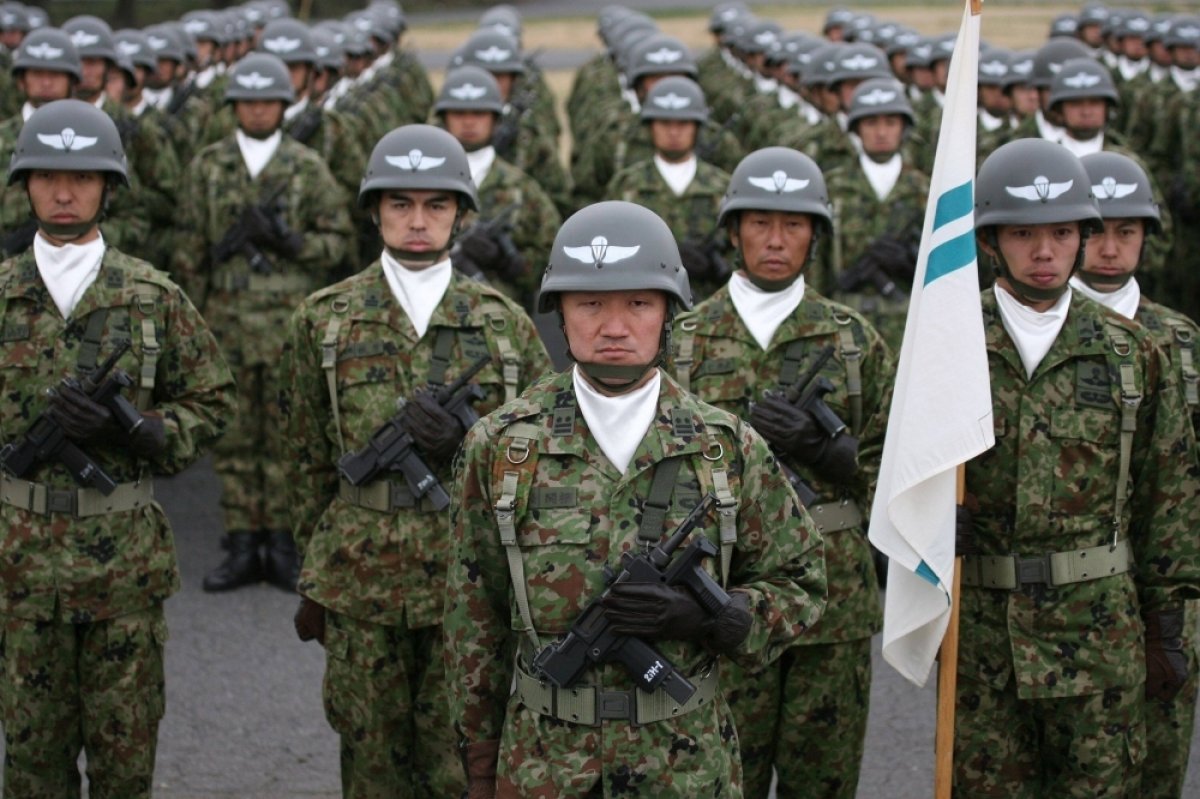The unprecedented increase in Japan's defense budget has brought about a new challenge for the Self-Defense Forces – a declining population, as reported by Sarbaz.kz.

Since 1990, the number of the Self-Defense Forces in Japan has decreased by more than 7%. In 2022, their numbers stood at just 228,000 personnel, 19,000 short of the required 247,000.
The actual personnel strength as a percentage of the authorized strength has fluctuated between 91-94% over the past ten years, leading a group of experts to conclude that the armed forces are facing an "extremely high risk" of weakening due to personnel shortages.
Experts cite three primary reasons hindering quality recruitment:
Demographic Problem: The number of Japanese aged 18 to 26, constituting the core of the Japanese military, has decreased from 17 million in 1994 to 10.5 million as of October 2021. Experts predict a further decline to 7.2 million by 2040. Over 80% of those who enter military service leave after one or two terms.
Shrinking Pool of Potential Soldiers: The Self-Defense Forces must also compete with the private sector for recruits, with private companies often offering more attractive employment conditions. Furthermore, the economy is performing relatively well with low unemployment, giving civilian enterprises more resources to offer even more enticing incentives.
Image and Morale Issues: Pacifism, which has shaped Japanese public opinion throughout the post-war era, has cast the military in an unfavorable light. However, the situation somewhat changed after the Fukushima nuclear disaster in 2011, where soldiers played a prominent role in disaster response. This helped improve the image of the military, known for its humanitarian aid efforts and disaster relief.
The Ministry of Defense has attempted to address some of these issues. The upper age limit for recruits was raised from 26 in 2018 to 32 years to increase the number of candidates. The mandatory retirement age for colonels, captains, and lower-ranking personnel was raised by one year for each rank.
In addition to these efforts, there have been wage increases. Expert groups recommended measures to enhance the quality of life for soldiers, and the recent defense budget includes provisions such as improved food, housing, and base infrastructure, including childcare facilities and family-friendly accommodation, as well as support for spouses and the skills development of recruits.
Another attempt to compensate for personnel shortages has been to increase the proportion of female soldiers from 8.3% to 9% of the total military personnel. Currently, there are only 19,000 women in the service. This necessitates improving working and living conditions for women, along with a robust program to combat harassment.
However, recruiting women for the Self-Defense Forces has become more challenging after reports that a female member of the Maritime Self-Defense Force suffered harassment from a senior officer, and clumsy attempts by the military to handle the situation exacerbated the damage caused. Harassment of the female soldier occurred from August to December 2022, involving unwanted touching and inappropriate comments, leading to her resignation. This week, it was revealed that while dealing with the situation, a senior officer compelled the victim to meet with her harasser and obtain an apology, despite her strong reluctance to do so. The officer also failed to report the complaint to his superiors.
The military bureaucracy has recognized the seriousness of the problem. The Self-Defense Forces have established a consultation system for individuals who claim to have been harassed, although it is underutilized. According to a survey conducted earlier this year, nearly two-thirds (64.2%) of reported harassment cases did not use the system. Defense Minister Kihara issued a directive this week urging all relevant parties to promptly report on the progress of harassment cases.
Despite these efforts, the number of female recruits has decreased by 12%, although there had been a trend of yearly increases since 2017. This decline exacerbates the broader recruitment issue faced by the Self-Defense Forces.
It is worth noting that Prime Minister Fumio Kishida's administration planned to increase Japan's defense budget to 2% of GDP, the largest defense budget since World War II. Most of the budget was allocated to automated weapon systems to compensate for personnel shortages. However, due to the weakening yen, the Ministry of Defense was forced to cut some programs.
This imbalance between expanding and modernizing weapon systems and personnel shortages will result in the government failing to achieve its goal of strengthening the nation's defense. Fundamentally, national defense depends on effective and dedicated personnel. The government should not lose sight of this fundamental truth.